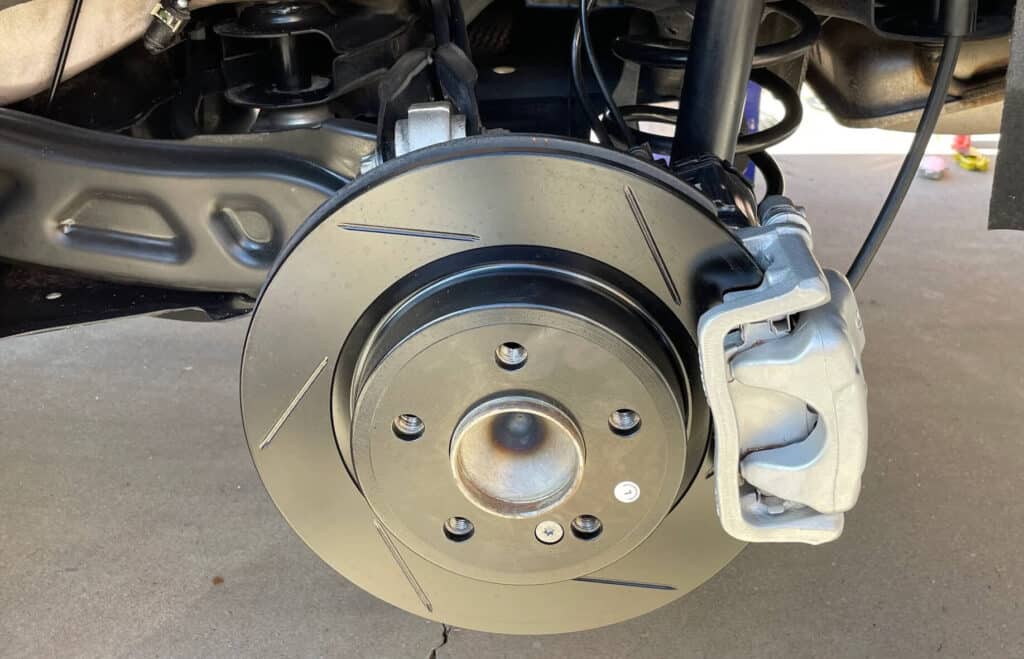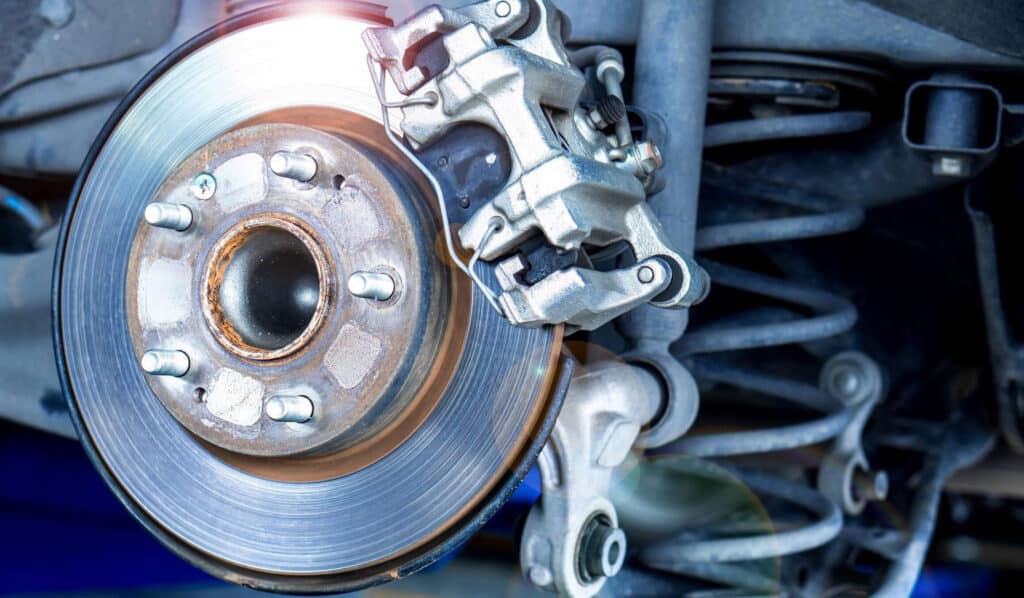Understanding Brake Calipers: What They Are and How Long They Should Last
Translating these numbers into kilometers, brake calipers, under normal conditions, should last anywhere between 80,000 to 160,000 kilometers. The broad range is due to factors such as the driving style, road conditions, and the overall maintenance schedule. Aggressive driving styles, which involve a lot of hard braking, can shorten this lifespan, as can regularly driving in heavy traffic or on steep terrain. Conversely, gentle driving with fewer stops and starts, coupled with regular and proper maintenance, can help your brake calipers last towards the upper end of this range. Remember, a well-maintained brake caliper not only ensures your safety but can also save you money in the long run by minimizing the need for replacements.

Maintenance 101: Daily Practices to Improve and Extend the Life of Your Caliper Brakes
Improving and extending the life of your brake calipers involves a combination of good driving habits and regular maintenance.
Avoid Harsh Braking: One of the best ways to prolong the life of your brake calipers is to avoid harsh braking whenever possible. This puts less strain on the calipers, reducing wear and tear. Planning your stops in advance and maintaining a safe distance from the vehicle in front can help you brake more smoothly.
Drive at Moderate Speeds: High-speed driving often requires more frequent and forceful braking, which can put extra strain on your calipers. By keeping your speed moderate, you can reduce this strain and extend the lifespan of your calipers.
Don’t Overload Your Vehicle: Overloading your vehicle increases the strain on your brakes and especially the calipers, which have to work harder to stop the heavier vehicle. Always stay within your vehicle’s recommended weight limit to help preserve your brake calipers.
Maintain Clean Brake Fluid: The brake fluid in your vehicle should be clean and at the correct level to ensure optimal performance of your calipers. Dirty or low brake fluid can lead to corrosion or damage to the calipers. Regularly check the brake fluid and replace it according to the vehicle manufacturer’s guidelines.
Brake Care: Effective Strategies for Prolonging the Lifespan of Your Brakes
In addition to daily practices, there are some other effective strategies for prolonging the lifespan of your brakes. An important strategy is to periodically check the brake pads and replace them when necessary. Brake pads are what your calipers press against to stop your vehicle, and worn-out pads can cause damage to your calipers over time. Consider investing in high-quality brake pads; they may cost a bit more initially, but they’ll likely last longer and help protect your calipers. Moreover, regular brake system inspections by a professional can spot potential issues before they become severe, contributing to a longer lifespan for your calipers and the overall braking system.
Lastly, ensure your tires are in good condition and properly inflated. Tires that are worn out or underinflated can increase the braking distance, putting extra stress on the calipers. Maintaining your tires not only aids in safer driving but also contributes to a longer lifespan for your brake calipers. Remember, consistent and mindful care can keep your brake calipers and your entire braking system functioning efficiently for many years.
To Rebuild or Replace: Making the Right Decision for Your Brake Calipers
While the decision ultimately depends on the specific situation and the vehicle’s condition, it’s also important to consider the complexity of the task. Rebuilding a brake caliper can be a labor-intensive process and requires a certain level of mechanical skill and knowledge. Unless you’re comfortable and experienced in such tasks, it might be safer and more efficient to opt for a professional replacement.
Also, consider the age and overall condition of your vehicle. If your car is older or has been driven under severe conditions, the calipers may have experienced wear beyond visible external damage. In such cases, replacement may provide greater peace of mind and longer-lasting results. Whether you choose to rebuild or replace, always prioritize safety and the effective functioning of your braking system.

Preventive Measures: Routine Inspections and Maintenance to Avoid Brake Caliper Issues
It’s also a good idea to clean your brake calipers regularly to remove dust, debris, and rust, which can interfere with their proper functioning. This can be done with a brush and a dedicated brake cleaner. Lubricating the moving parts of the caliper with a high-temperature brake grease can prevent sticking and seizing. Be sure to only apply lubricant to the areas specified in your vehicle’s service manual to avoid any unwanted effects.
Keep in mind that while these preventive measures can significantly reduce the likelihood of brake caliper issues, they do not eliminate the possibility entirely. Wear and tear is an inevitable part of the life of any vehicle component, and brake calipers are no exception. Therefore, even with the best maintenance practices, you may still need to repair or replace your brake calipers eventually.
Investing in Longevity: Quality Parts and Regular Servicing for Durable Brake Calipers
Investing in high-quality parts and regular professional servicing can also contribute significantly to the durability of your brake calipers. Opting for high-quality, durable materials can resist high temperatures and pressure better. Regular servicing by a professional mechanic can ensure that your calipers are in good working order and can catch any issues before they turn into major problems.
Conclusion
Maximizing the lifespan of your brake calipers can save you money, enhance your vehicle’s performance, and most importantly, keep you safe on the road. By understanding the role of your brake calipers, practicing good driving habits, and investing in routine inspections and maintenance, you can ensure the longevity of your brake calipers and your vehicle’s braking system as a whole.
